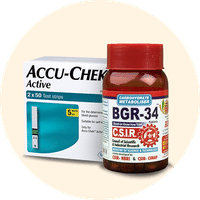Hairizer Tablet

Rs.196for 1 strip(s) (10 tablets each)
food interaction for Hairizer
alcohol interaction for Hairizer
pregnancy interaction for Hairizer
lactation interaction for Hairizer
food
alcohol
pregnancy
lactation
Hairizer Tablet may be taken with or without food, but it is better to take it at a fixed time.
None
None
CAUTION
It is not known whether it is safe to consume alcohol with Hairizer Tablet. Please consult your doctor.
CONSULT YOUR DOCTOR
Information regarding the use of Hairizer Tablet during pregnancy is not available. Please consult your doctor.
CONSULT YOUR DOCTOR
Information regarding the use of Hairizer Tablet during breastfeeding is not available. Please consult your doctor.
CONSULT YOUR DOCTOR
SALT INFORMATION FOR Hairizer
Biotin(10mg)
Uses
Biotin is used in the treatment of nutritional deficiencies.
How it works
Biotin is a form of vitamin B that provides essential nutrients.
Common side effects
No common side effects seen
Acetylcysteine(50mg)
Uses
Acetylcysteine is used for respiratory disease with excessive mucus. It acts as mucolytic (loosen mucus in airways) when used in oral preparations while when used as injection it treats paracetamol overdose toxicity.
How it works
Acetylcysteine is a mucolytic medication. It thins and loosens mucus (phlegm) in the nose, windpipe and lungs making it easier to cough out.
Common side effects
Gastrointestinal discomfort, Fever, Nausea, Vomiting, Rash
Calcium Pantothenate(200mg)
Uses
Calcium Pantothenate is used in the treatment of nutritional deficiencies.
How it works
Calcium Pantothenate provides essential nutrients.
Common side effects
Central nervous system depression, Coma, Ectopic mineralization
Selenium(65mcg)
Uses
Selenium is used in the treatment of nutritional deficiencies.
How it works
Selenium provides essential nutrients
Common side effects
Nervous system disorder, Fatigue, Garlic breath odor, Irritation, Rash, Hair loss, Nail disorder
Copper(3mg)
Uses
Copper is used in the treatment of nutritional deficiencies.
How it works
Copper provides essential nutrients
Common side effects
Anemia (low number of red blood cells), Bloody diarrhea, Cardiac disorder, Decreased blood pressure, Fever, Nausea, Stomach pain, Vomiting
Zinc Oxide(22.5mg)
Uses
Zinc Oxide is used in the treatment of nutritional deficiencies.
How it works
Zinc Oxide provides essential nutrients
Common side effects
No common side effects seen
SUBSTITUTES FOR Hairizer
No substitutes foundExpert advice FOR Hairizer
Do consult your doctor if you are receiving kidney dialysis as higher doses of biotin may be needed. Do consult your doctor before taking biotin if you have,
- Kidney disease.
- Undergone stomach surgery.
- If you smoke.
Do inform your doctor about all medications currently taken before starting biotin supplementation.
Frequently asked questions FOR Hairizer
Biotin
Q. What is Biotin? What is it used for?
Biotin consists of vitamin B7 which is commonly known as biotin. It is a water-soluble, B-complex vitamin that contributes to healthy metabolic, nerve, digestive and cardiovascular functions. Biotin helps to provide vitamin B7 which is essential for metabolizing fats and carbohydrates. This also helps strengthen hair, increase nail thickness and prevent split ends and thinning hair.
Q. What causes the deficiency of biotin?
The deficiency of biotin is extremely rare. However, it may be seen commonly in cases of inadequate dietary intake, alcoholism, smoking or a genetic disorder, such as Crohn’s disease, that affects biotin metabolism. Long-term antibiotic usage has also been associated with biotin deficiency.
Q. What are the symptoms of biotin deficiency?
Symptoms of a biotin deficiency include skin rashes, brittle and thinning hair and nails, seborrheic dermatitis and alopecia (hair loss). If you experience any of these, consult your doctor.
Acetylcysteine
Q. How is Acetylcysteine administered?
Acetylcysteine is given as a tablet form and can be taken with or without food. The tablets are to be taken twice daily in the morning and evening. The exact dosage and frequency of dose will be decided by the doctor on the basis of age and weight of the patient.
Q. Are there chances of anemia with Acetylcysteine?
Yes, there are chances that Acetylcysteine may cause anemia. It has been observed that Acetylcysteine can cause a dose-related decrease in hemoglobin in the blood which could lead to anemia. Regular hemoglobin check is advised while taking Acetylcysteine and consult your prescribing doctor for his advice. If the patients develop anemia then in some cases blood transfusion is done to correct it.
Q. Is Acetylcysteine safe for pregnant women?
Acetylcysteine can be given to a pregnant woman if the benefit of this medicine is more than the risk involved. Evidence shows it can be used in pregnant females without any gross risk to the fetus in the womb. Consult your doctor before starting the medication.
Calcium Pantothenate
Selenium
Q. Can I take selenium with synthyroid/ levothyroxine/ armour thyroid/ thyroxin?
There are no known interactions of selenium with any thyroid preparations such as synthyroid/ levothyroxine/ armour thyroid/ thyroxin. Selenium which is a part of selenoprotein (iodothyronine deiodinases) is essential for the conversion of thyroxine (T4) to the biologically active thyroid hormone triiodothyronine (T3) thereby it is important in thyroid hormone functioning
Q. Can I take selenium with calcium?
There are no known interactions of selenium with minerals such as calcium
Q. Can I take selenium with other vitamins/ vitamin C/ zinc?
Yes. Selenium (gluthathione peroxidase) has been reported to support the activity of vitamin E in limiting the oxidation of lipids (fats). Selenium also interacts with zinc (it affects cellular redox status). Selenium can, however, be taken with vitamins/ zinc; the combinations are available as a part of multivitamin preparation
Copper
Q. Is copper good for health?
Copper is a mineral required for normal health. It is required by body to use iron. It is also important for nerve function, bone growth, and to help your body use sugar
Q. Can you take copper with vitamin c?
Yes. Major interaction doesn’t occur if copper is taken along with vitamin C.















